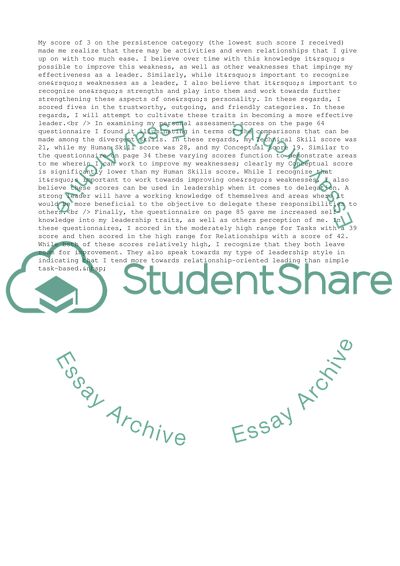Cite this document
(Leadership in Organisations Coursework Example | Topics and Well Written Essays - 2000 words, n.d.)
Leadership in Organisations Coursework Example | Topics and Well Written Essays - 2000 words. Retrieved from https://studentshare.org/management/1569744-leadership-in-organisations-reflective-journal-assignment
Leadership in Organisations Coursework Example | Topics and Well Written Essays - 2000 words. Retrieved from https://studentshare.org/management/1569744-leadership-in-organisations-reflective-journal-assignment
(Leadership in Organisations Coursework Example | Topics and Well Written Essays - 2000 Words)
Leadership in Organisations Coursework Example | Topics and Well Written Essays - 2000 Words. https://studentshare.org/management/1569744-leadership-in-organisations-reflective-journal-assignment.
Leadership in Organisations Coursework Example | Topics and Well Written Essays - 2000 Words. https://studentshare.org/management/1569744-leadership-in-organisations-reflective-journal-assignment.
“Leadership in Organisations Coursework Example | Topics and Well Written Essays - 2000 Words”. https://studentshare.org/management/1569744-leadership-in-organisations-reflective-journal-assignment.


